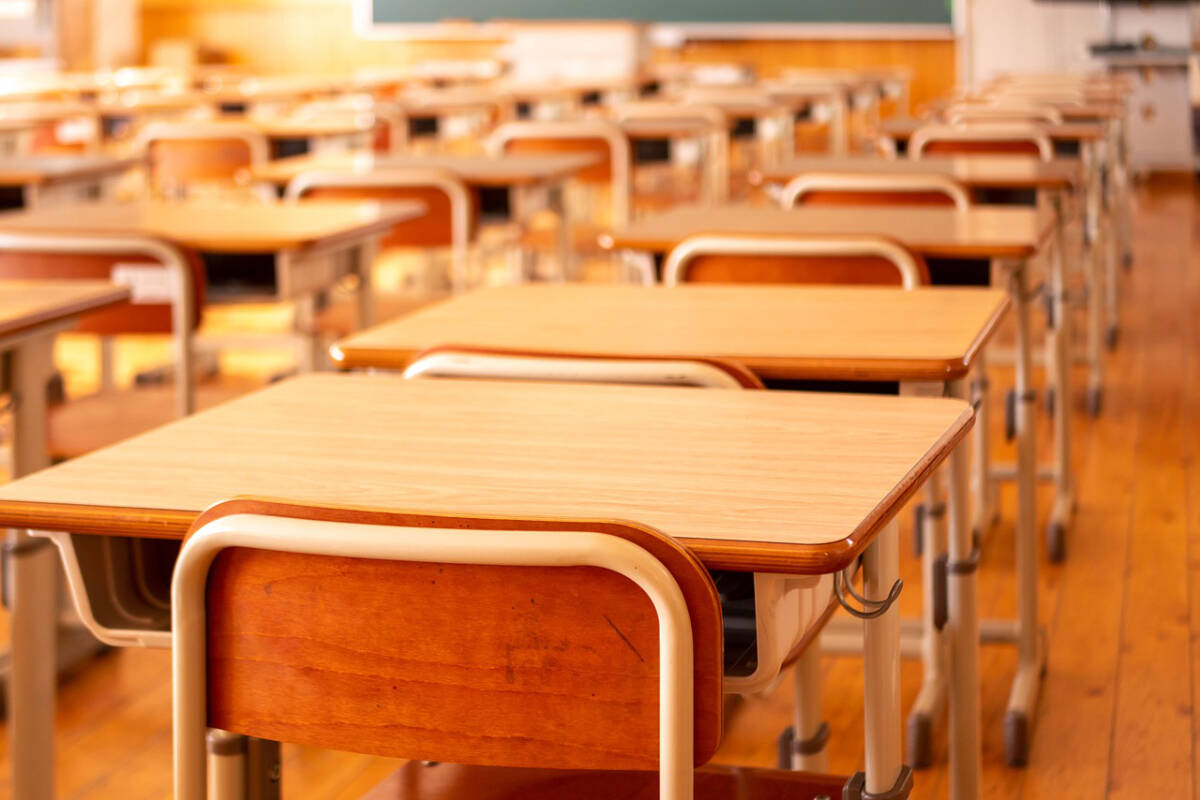B.C. teachers are struggling to meet student needs and maintain their own well-being amid an ongoing lack of resources, according to their union’s latest annual report.
The B.C. Teachers’ Federation (BCTF) surveyed 5,209 members in February on their experiences over the last 12 months and found a large number are feeling overwhelmed and short on time.
One of the largest changes recorded between 2022/23 and 2o23/24 was in the volume of work teachers reported having on their plates. More than 58 per cent of respondents said their workload has increased and 56 per cent said it is at an unmanageable level. Of the latter, 42.6 per cent also said they are currently unhappy with their job.
“Though the overwhelming nature of being a beginning teacher is gone, I find I am still overwhelmed in this career. There’s never enough time to prep everything I need (especially for kindergarten). There are not enough resources for teaching early French Immersion. I have to make almost all of my own (which adds to being overwhelmed),” one teacher shared in the survey.
Some of that feeling may be reflected in the number of respondents who said they are having health challenges. Just under 15 per cent described their mental health as poor or very poor, while 37.1 per cent said it is fair and 48 per cent described it as good or very good. Under physical health, 7.4 per cent said it is poor or very poor, 29.9 per cent said it is fair and 62.4 per cent said they are doing well or very well.
Both of those measures actually indicate improvements from 2022/23, but BCTF said the number of teachers struggling is still too high.
One survey respondent wrote: “Coworkers have heart attacks, lose their pregnancy, [are] on medication…because of what this job is doing to them. It’s disheartening thinking that we will break before anything is fixed.”
Another area of concern BCTF highlighted is in the number of teachers facing workplace discrimination. Over the last year, 17.4 per cent of respondents said they have experienced unfair treatment. That percentage was significantly higher for Indigenous (26.2 per cent), Chinese (24.1 per cent), South Asian (29.4 per cent), Black (40 per cent) and Arab (54.5 per cent) respondents. It was also higher for teachers with disabilities, 32.7 per cent of which reported discrimination, and non-binary teachers, over half of which indicated the same.
“This is particularly concerning and reflects the rise of anti-SOGI sentiments in some school communities,” BCTF remarked in its report.
It’s not just the teachers who are facing challenges, though. According to the survey, less than a quarter of respondents believe students’ academic, social and emotional needs are being fully met. And, when it comes to students with diverse needs or disabilities, 46.2 per cent of responding teachers said they think those student’s needs are only being slightly met or not met at all.
One teacher noted that it can take years for a student to receive designation as someone with diverse needs and, in the meantime, the school has to figure out how to support them without any additional help or funding.
Asked what increase in staffing resources would be the most helpful to them overall, 39.4 per cent of respondents asked for more educational assistants, 27.3 per cent prioritized more classroom teachers and 23.8 per cent said more specialist teachers.
BCTF’s president, Clint Johnston, said in a statement that the report highlights the impact that working conditions are having on the province’s teacher shortage. In the survey, 15.2 per cent of teachers said it is unlikely they will still be teaching in B.C. in two year’s time. Meanwhile, the union estimates 20,000 teachers and 7,000 teaching assistants will be needed over the next decade to keep up with enrollment.
“B.C. families deserve better. Parents deserve to know that when they drop their kids off at school, they will receive the full support they need to succeed academically, socially, and emotionally. That’s not possible when teachers are buriedin unmanageable workloads and trying to lead increasingly complex classrooms with decreasing support,” Johnston said.
Minister of Education Rachna Singh said in a statement to Black Press Media that they are working with education partners to create a workforce plan to “recruit, train, hire and retain” more staff.
“I truly appreciate the BCTF participating as active members in the development of our workforce plan, and I appreciate hearing from members about other supports they need to succeed,” she said.
READ ALSO: $200,000 private donation helps B.C. district fill teacher shortage
READ ALSO: No easy fix for rise of uncertified teachers in BC schools: BCTF

